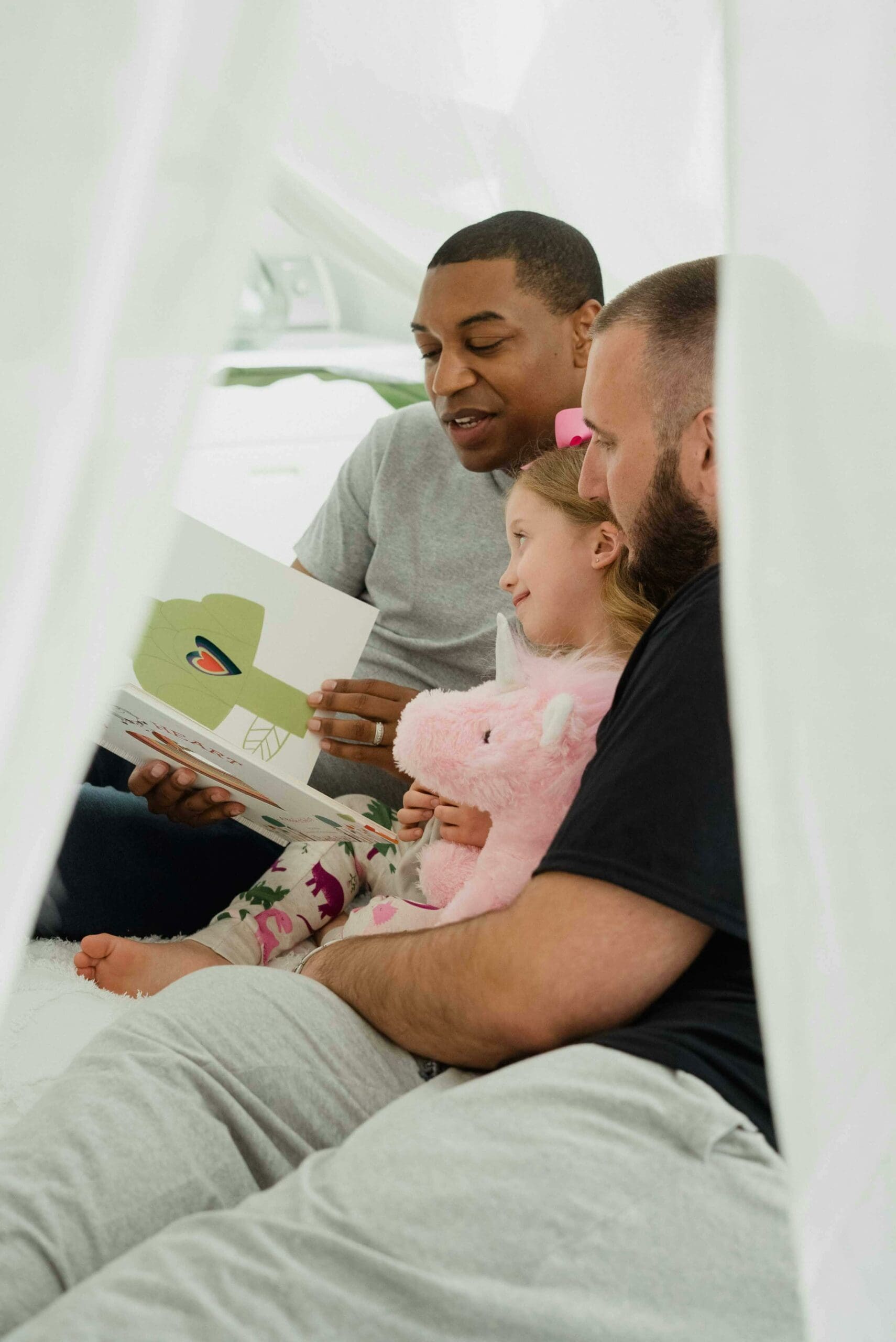Adoption is the process by which the parental responsibility for a child is legally transferred to someone who is not the biological parent of that child.
In Australia, there only a small number of children each year who need a family, outnumbering the quantity of families who are trying to adopt.
Adoption in Victoria is governed by the Adoption Act 1984. In Victoria, between 2022 and 2023 a total of 8 children were adopted locally, and 2 children were adopted from overseas yet 65 families were registered to adopt.
In the whole of Australia between 2021 and 2022 only 31 local adoption and 16 intercountry adoptions occurred, and 161 known child adoptions occurred.
Known child adoptions are defined as adoptions where a relative or stepparent adopted the child.

Eligibility Criteria for Prospective Adoptive Parents
In Victoria, you are eligible to adopt if you are an adult and normally reside in Victoria. You must be either married, in a de facto relationship for at least 2 years, or single, to apply.
There are restrictions on when the Court can grant adoption to single people. Under the Adoption Act, the Court may make an adoption order for a single person to adopt a child if it is desirable to do so.
In Victoria, the following characteristics are considered when reviewing applications:
- Readiness to adopt;
- Capability to parent a child with special or additional needs;
- Dedication to open adoption; and
- Diversity of applicants.
When assessing prospective adoptive parents’ readiness, the current circumstances of the couple will be considered, such as plans for fertility treatment and the needs of any children in the family.
When assessing the capability of prospective parents to care for a child with additional needs, the capacity of the parents to support the child’s needs, including ongoing contact with their natural family, any disabilities or health problems, developmental trauma and any cultural or linguistic diversity.
It is understood that children benefit from a relationship with their birth parents. It will therefore be important for adoptive parents to be capable and willing to facilitate a relationship between a child and their birth parents. Birth parents may also express their wishes relating to prospective adoptive parent’s background, location, religion, occupation and any other factors important to them.

Understanding the different Types of Adoption
There are two types of adoption in Australia. They are intercountry adoption and local adoption.
- Intercountry adoption occurs when a child is adopted from overseas and brought back to Australia.
- Local adoption occurs when the child was born or is permanently living in Australia.
Australia practices open adoption where adopted children are encouraged to have a relationship with their birth parents. It is also illegal in Australia for birth parents to arrange a private adoption.
The Legal Process of Adoption
- The first step in applying to adopt a child is to email Adoption Services Victoria to receive an information kit.
- The second step is to register your interest to adopt a child by completing a questionnaire and sending it back by email.
- Thirdly, Adoption Victoria will invite applicants to be assessed as fit and proper persons to adopt a child.
- The fourth step requires applicants to attend education sessions and complete a detailed application which includes police, medical and working with children’s checks, financial statements, references and background information.
- Step five involves the assessment of the application, where a case manager will meet with you to prepare a report based on your application. The case manager will speak with you, any members of your household and nominated referees.
- The sixth step is the approval stage where applicants are approved and placed on the register used to match families with children.
Following this, prospective parents will have to wait to be matched with a child which can take a significant amount of time given there are so few children up for adoption in Australia.

The Role of Consent in Adoption Proceedings
The consent of the birth parents to put the child up for adoption is imperative for the adoption process in Australia.
The mother or father of the child are the only people that can give consent to the child being adopted as per section 33 of the Adoption Act.
The natural birth parents of the child must sign the prescribed consent form in the presence of two witnesses. Birth parents can revoke the adoption consent within the revocation period, and they cannot give consent before the child is born.
Interstate and International Adoption Considerations
Interstate adoptions will depend on the particular state or territory authority and application and adoption processes may vary in each individual state and territory.
Generally, you cannot apply to adopt a child from another state, only the one in which you reside in.
Australia has arrangements with 13 other countries for intercountry adoption, these are called partner countries. The Australian government does not support adoption outside of these countries. The 13 partner countries include:
- Bulgaria;
- Chile;
- Chine;
- Colombia;
- Hong Kong;
- India;
- Latvia;
- Poland;
- South Africa;
- South Korea;
- Sri Lanka;
- Taiwan; and
Adoption of a child from a partner country must meet the principles and standards set out in the Hague Convention. Most importantly, the adoption must be in the best interests of the child and should only occur when they are no appropriate adoptive families in the child’s birth country.
In Victoria, applicants for intercountry adoption must meet both the eligibility requirements within Victoria and the eligibility requirements of the child’s country of birth. Each country has different eligibility requirements and may vary in relation to the applicants age, health issues, finances, family type, fertility, education, religion and background.
Some countries will not accept applications from couples in a same-sex relationship or from single applicants.
Adoption by Same-Sex Couples and Single Parents
In Victoria, prospective single parents or applicants in same-sex relationships are also permitted to apply to adopt a child. This is not the case for all intercountry adoptions however as some countries do not allow for applications from single people or members of a same-sex relationship.
In Colombia for example, married couples, de facto couples, same-sex couples and single people can apply however basic Spanish language skills are required.
Poland however, does not allow same-sex couples to apply to adopt a child, but married and de facto couples can and so can single people.
Finalising the Adoption Journey
Once adoption has been finalised parents may seek support from Adoption Victoria via email if they require additional assistance.
Parents who have adopted a child from another country can seek help and support through Intercountry Adoption Australia. Intercountry Adoption Australia can help with counselling, resources and information and support services.
At Matthies Lawyers, we are here to cater to your family law needs. Our team of family lawyers proudly serves clients in South Yarra, Toorak, Windsor, Prahran, Armadale, and Richmond.
Contact us today for expert legal advice and support or call +61 3 8692 2517.
—
Kate Scolyer – Solicitor– Matthies Lawyers
Disclaimer: This article contains general information only and is not intended to be a substitute for obtaining legal advice.
